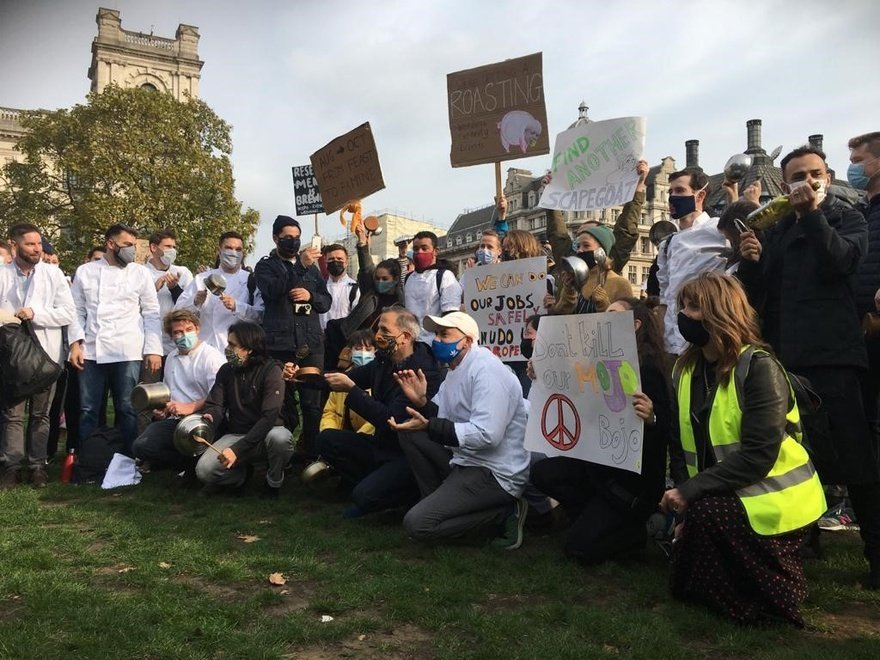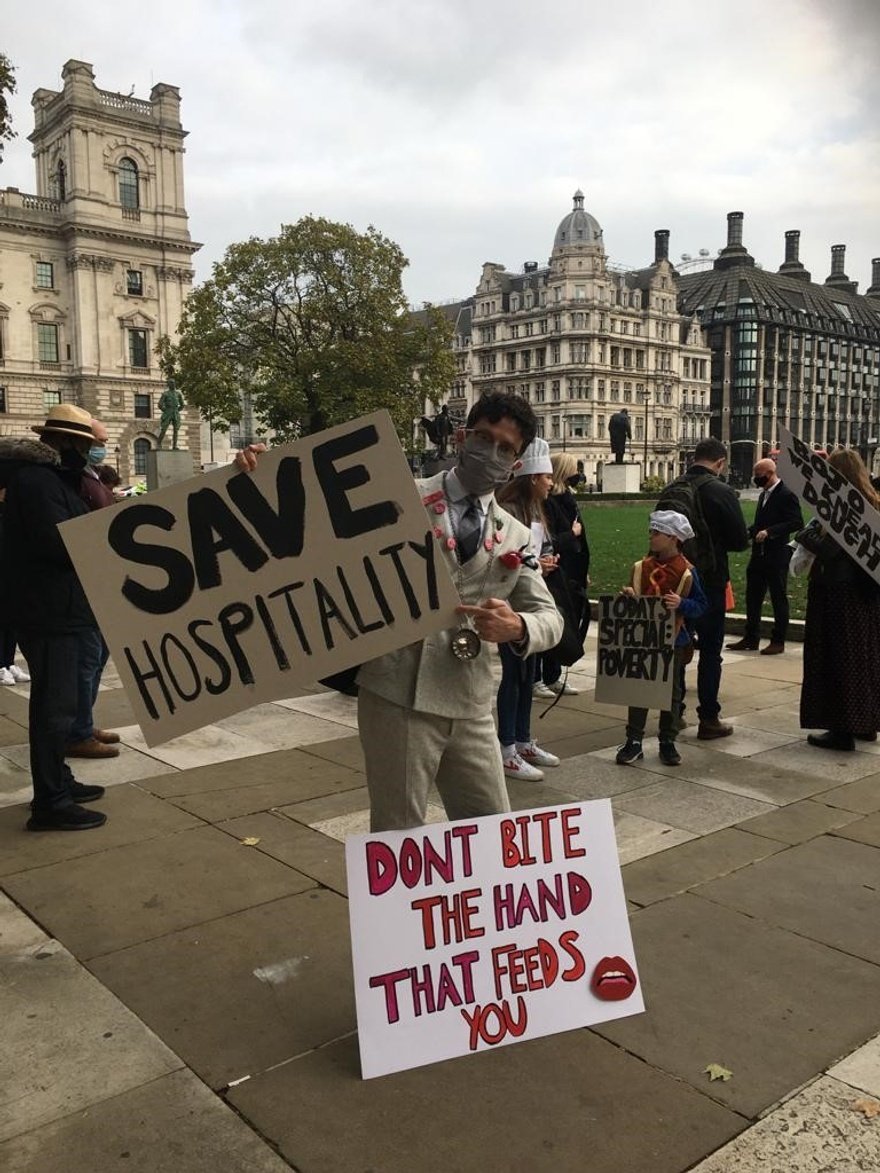Eyewitness: Hospitality workers take the protest to Westminster
The sun was shining on Westminster's Parliament Square as the first of the HospoDemo protesters began to arrive.
By 10am on 19 October a crowd had gathered on the grass for a peaceful protest incorporating workers from across hospitality –chefs, kitchen porters and front of house teams, as well as managers, publicans and owner-operators.
If the government wasn't going to reach out to them, the industry would take its voice to Westminster. It could wait no longer.
And so they came to stand their ground for the survival of an industry upon which their livelihoods depended. Some had already lost their jobs, their businesses ruined; others were hanging on, hopeful that today's rally would spark an urgent and desperately needed rethink. Whatever their background, a common belief united them: they had been let down and unfairly treated by the government.
They felt misrepresented in the public eye. The mood was friendly, but the message was firm: no longer were they prepared to sit in silence and accept the tightening of rules imposed on them. They had had enough of being treated as the scapegoats and the guinea pigs, forced to navigate an ever-increasing and strangling web of restrictions. They called for scientific evidence and for sector-specific financial support.
Dogs and children weaved in and out of the crowd; news crews were poised, readying tripods and mics. The 600-strong crowd was determined to be heard and for the government to engage with them to save an industry already on the brink, from disappearing altogether, with even longstanding businesses just weeks from closing, and many jobs at risk.
The volume rose when a fresh crowd of protesters spilled onto the square with placards: "Don't bite the hand that feeds you"; "Bojo we knead dough"; "Sumac not Sunak"; "Find another scapegoat"; "Don't kill our mojo, Bojo". Others were stronger: "Resentment is brewing"; "Today's special: poverty".
The crowd joined industry leaders, including Yotam Ottolenghi and Tim Aikens, wearing chef's whites, aprons, branded shirts and masks, brandishing the instruments of their trade – pots and pans, cheese graters, cocktail shakers, bottles, ice buckets, whisks and tins – ready to make a noise.
At 11am, as planned, the noise started up, a deafening clatter of pans being struck by spoons, metal shakers, klaxons and whistles blown. People circled around a chef who struck up a rhythm on a pan. A group of dancers waved fireworks sticks in the air. It was an upbeat display, but with an underlying edge of anger and frustration.
It was a cry to government and policymakers to sit up and take notice. Their industry, already fragile, was now being crippled by curfews, the rule of six and the ban on households mixing indoors. Things had to change; enough was enough.
It concluded with applause and, just as peacefully as it had started, the crowd dispersed and went their separate ways. They had made their noise; whether they were heard remains to be seen.







